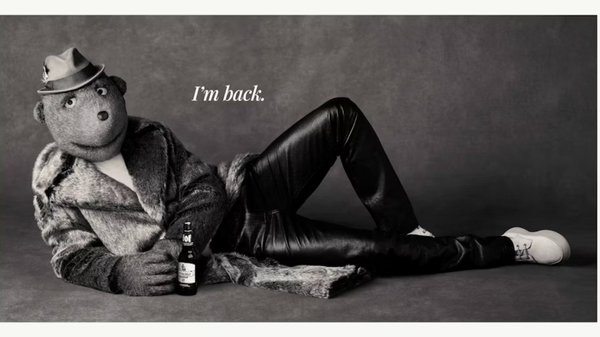‘Ignoring the Menopause is not just bad for women, it’s bad business’ /
Menopausal women are the fastest-growing demographic in the workforce, but you wouldn’t know it based on the output of adland.
Phoebe O’Connell
/
Every now and again new research is published about the menopause – about how it’s affecting women at work, or how a lack of understanding about symptoms is preventing women from seeking treatment. And every time, the ad industry responds with a call for change. It cites statistics like how 76% of menopausal women in the UK don’t feel they are represented by brands at all, or that 91% of US women surveyed have never seen specific advertising or marketing for menopausal women. They highlight the spending power of midlife (or ‘prime time’) women and the growth of the global menopause market (estimated to be worth $24.4bn by 2030), and call out ageism.
But despite a growing supply of menopause wellness products and supplements from the likes of Unilever and P&G, or startups like Kindra and Hello Again, menopausal women are still conspicuously absent from advertising.
In fact, in the lifeless dust bowl that is ‘menopause marketing’, only one campaign stands out. It’s a film by Essity-owned incontinence brand Tena and AMV BBDO, London, called Last Lonely Menopause, released in April 2022. It’s a tender, uplifting ad that depicts a mother-daughter relationship, as well as some of the 34 symptoms of menopause with sensitivity, accuracy and empathy.
Age-old problem /
Tena doesn’t shy away from the taboos of ageing and hormonal changes – the ad flits seamlessly from incontinence to brain fog to sex. The branding is light-touch and the call to action is a nod to how many women suffer through menopause alone: ‘Let’s make this the #LastLonelyMenopause.’
There’s no euphemism or sensationalism — the Last Lonely Menopause campaign works because it speaks to and for (rather than down to) its audience.
It’s the kind of taboo-dismantling work we expect from the brand, which in 2020 worked with Oscar-nominated director Yorgos Lanthimos (The Favourite) on a film called Ageless, featuring women over 55 discussing their attitudes towards sex and their own bodies. But it’s a representation of ‘women of a certain age’ that we rarely see in the media.
‘A big issue with menopause is that not enough people understand it,’ says Melissa Robertson, CEO of creative agency Dark Horses and a director at Menopause Mandate, a not-for-profit organisation set up to lobby for much needed support and education around menopause. In the UK 42% of medical courses don’t even cover menopause, so symptoms go untreated and misdiagnosed. ‘You’ve got all of these GPs that simply don’t know about the menopause and these women who don’t know they’re menopausal,’ says Robertson.
That lack of education is also holding back the advertising industry – it’s no wonder there’s little meaningful creative work around the menopause. Without a proper understanding of what women go through and how it impacts their lives, brands don’t stand a chance of resonating with this audience. ‘Tena’s [work] is so good because they have evidently gone out there and talked to women who are going through perimenopause and menopause, and understood what their lives are like,’ says Robertson.
Do your research /
By failing to educate yourself on the reality of menopause, you risk contributing to the problem; poorly researched work will reek of inauthenticity, playing into tropes and stereotypes of women over 50. Advertising aimed at menopausal women has to be based on strong insights – this industry has a nasty habit of pushing superficial messages and products around occasions like International Women’s Day, for example. ‘There’s a danger of going into pink biro territory,’ says Robertson. ‘Oh, let’s just make it pink and say it’s for women and charge you 20% more for it.’
You only have to look a few years back to the success of Bodyform’s category-defining, taboo-busting work around menstruation to see the value of more realistic depictions of women’s experiences. By breaking with category norms and swapping sanitised ads full of white jeans and horse-riding for red blood and vulvas, Bodyform’s Blood Normal campaign (also by AMV BBDO, London) increased its social share of voice from 37% (versus Always’ 62%) to 90% (versus Always’ 10%). Ignoring the menopause is not just bad for women, it’s bad business.
Want more of the same? /
We don’t just write about best-in-class campaigns, interviews and trends. Our Members also receive access to briefings, online training, webinars, live events and much more.







